To anticipate high-quality human resources to serve the scientific and technological revolution and national digital transformation, experts say that appropriate and strong enough policies are needed to attract learners to this field.
Add “catalytic” policy
Recently, the Ministry of Finance announced the draft Decision of the Prime Minister on credit for students, trainees, and researchers in science, technology, engineering, and mathematics (draft Decision). The maximum loan amount is 5 million VND/month/student. With this policy, the Government expects to contribute to attracting high-quality human resources, creating breakthroughs in the development of science, technology, innovation, and digital transformation.
Having proposed preferential policies and regimes for students in the above-mentioned fields, Prof. Dr. Chu Duc Trinh - Rector of the University of Technology (Vietnam National University, Hanoi) acknowledged that the credit policy partly supports students in covering tuition fees and living expenses during their time studying and doing scientific research at the training institution. Thereby, helping students, trainees, and postgraduates (students) studying STEM fields to feel secure in their studies; gradually meeting the requirements for training high-quality human resources in this field.
In 2025, the University of Technology will open 4 new majors, including: Electronic and telecommunications engineering technology oriented towards microchip design, Materials technology (Material Technology and Microelectronics program), Data science (Data Science and Engineering program). Prof. Dr. Chu Duc Trinh hopes that if the proposal in the draft Decision becomes a reality, it will become a "catalyst" to attract many excellent students to study these majors.
After studying the draft Decision, Prof. Dr. Le Thanh Son - Vice Principal of the University of Science (Vietnam National University, Hanoi) said that at the present time, the credit loan level of 5 million VND/month/student is appropriate.
However, to create superiority, it is necessary to add some mechanisms and policies such as: Granting scholarships to students or providing interest-free loans... In particular, this policy needs to be applied to students who are masters and PhD students. In addition, the Government can apply a policy of principal grace period (no interest) for about 3 years from the date of graduation.
Explaining the above proposal, Prof. Dr. Le Thanh Son stated that in recent years, enrollment in science, technology, engineering and mathematics has encountered many difficulties. There are many reasons for this situation; including the factor of being "picky" about candidates because these are difficult majors, highly technical, with long and arduous study periods, and higher entrance and exit standards than other majors. Therefore, many students are not interested in "applying".
Therefore, the Vice President of the University of Science (Vietnam National University, Hanoi) suggested that in order to meet the requirements of training high-quality human resources in STEM fields, there needs to be a breakthrough in institutions and policies to attract learners; gradually meeting the goals of developing science, technology, innovation and national digital transformation, as well as the goals of rapid and sustainable economic development according to the policies of the Party and State.
The mechanism should be expanded.
Credit for students is currently applied according to the provisions of Decision 05/2022/QD-TTg (effective from May 19, 2022) with a maximum capital of 4 million VND/month/student.
According to Dr. Ngo Quoc Trinh - Head of Training Department, University of Transport Technology (Hanoi), the beneficiaries of this policy are students from poor and near-poor households, with an average living standard according to the standards prescribed by law. Applying this mechanism, the Government's application of credit for students in science, technology, engineering and mathematics is necessary.
However, Dr. Ngo Quoc Trinh said that compared to the current economic and social life, the maximum credit loan of 5 million/month/student is quite low. With this level, students will find it difficult to cover, especially in the context of "escalating" market prices and tuition fees of higher education institutions will increase according to the roadmap. Therefore, the Government should expand the mechanism, applying a loan level of 5 - 15 million/month/student.
Dr. Ngo Quoc Trinh analyzed that the draft Decision identifies major goals, including implementing the strategic tasks of Resolution 57-NQ/TW of the Politburo on breakthroughs in science, technology, innovation and national digital transformation (Resolution 57) and the Planning of the network of higher education and pedagogical institutions for the period 2021 - 2030, with a vision to 2050. Therefore, preferential policies need to be commensurate and consistent with the goals and tasks, so that when the draft Decision is officially issued, it will soon come into life.
Sharing the same view, Prof. Dr. Chu Duc Trinh proposed that if it is not possible to exempt tuition fees and grant scholarships to students according to the draft Decision, a maximum credit ceiling should be set (VND 20 million/month/student). On that basis, students can choose the credit level according to their personal needs. In addition, a loan interest rate policy should be applied equal to that of poor households within 1 year (from the date the student graduates).
The draft report of the Ministry of Finance sent to the Prime Minister on the issuance of a Decision on credit policy for students, trainees, and researchers in science, technology, engineering, and mathematics stated that, through a survey at 6 universities in Hanoi and Ho Chi Minh City, the tuition fee for STEM training in mass programs is about 30 - 50 million VND/year.
Advanced/international cooperation programs cost about 50 - 70 million VND/year. Training programs of some private/international universities can cost up to 200 - 300 million VND/year or more. The basic living expenses of students surveyed in these two cities are about 3 - 5 million VND/month. Thus, the highest tuition fee for STEM is about 1.2 billion VND/4-year course. The average is about 200 million VND/4-year course.
Citing the Report of the Ministry of Education and Training in Official Dispatch 1392/BGDĐT-GDĐH dated March 28, 2025 for students studying STEM majors, the draft Proposal stated that the average loan demand is about 9.5 million VND/month, including 5 million VND/month for living expenses; 4.5 million VND for tuition and other related expenses (equivalent to about 45 million VND/year tuition, about 180 million VND for the whole course).
With the goal of creating a unique and truly attractive mechanism to attract students, trainees, and postgraduates to study STEM majors, meeting the diverse needs of learners, the Ministry of Finance submitted to the Prime Minister a regulation: The maximum loan amount for 1 learner includes the entire tuition fee payable by the learner (after deducting scholarships and other financial support from the school) as confirmed by the school and a maximum living allowance of 5 million VND/month.
Cam Giang (According to giaoducthoidai)
Source: http://baovinhphuc.com.vn/Multimedia/Images/Id/128275/De-xuat-vay-tin-dung-voi-nguoi-hoc-STEM-Chinh-sach-da-du-manh


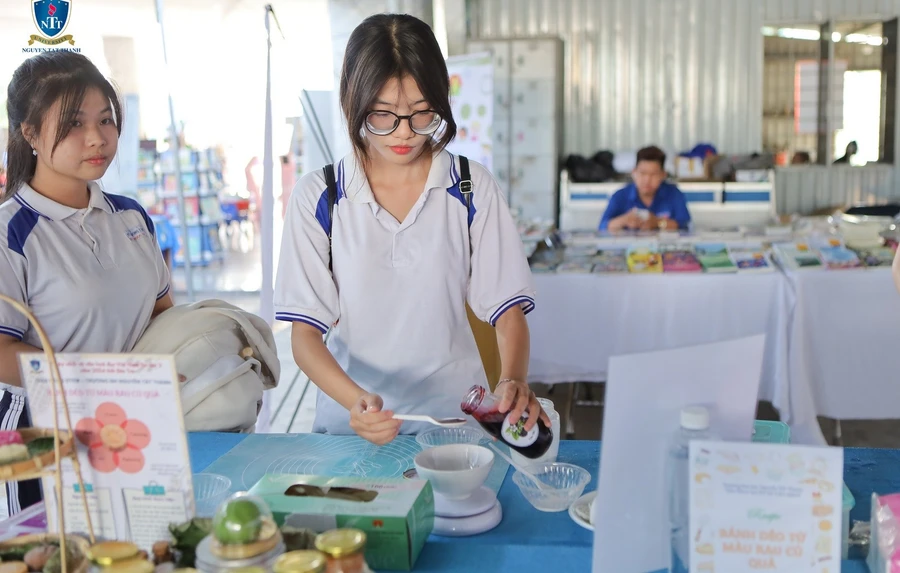
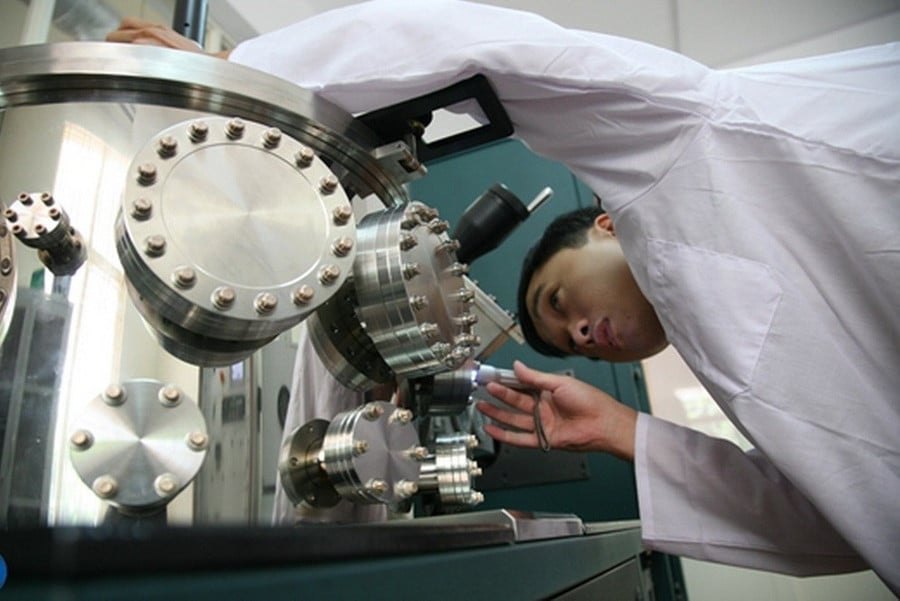



![[Photo] Prime Minister Pham Minh Chinh and Prime Minister of the Kingdom of Thailand Paetongtarn Shinawatra attend the Vietnam-Thailand Business Forum 2025](https://vphoto.vietnam.vn/thumb/1200x675/vietnam/resource/IMAGE/2025/5/16/1cdfce54d25c48a68ae6fb9204f2171a)




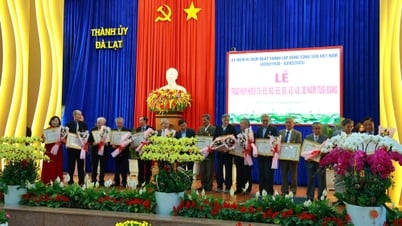


















![[Photo] President Luong Cuong receives Prime Minister of the Kingdom of Thailand Paetongtarn Shinawatra](https://vphoto.vietnam.vn/thumb/1200x675/vietnam/resource/IMAGE/2025/5/16/52c73b27198a4e12bd6a903d1c218846)



































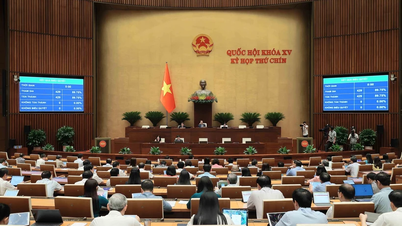






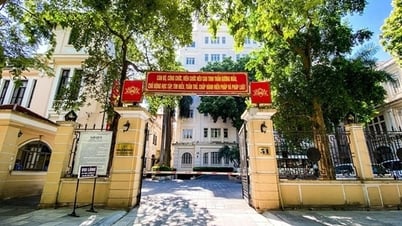
















Comment (0)